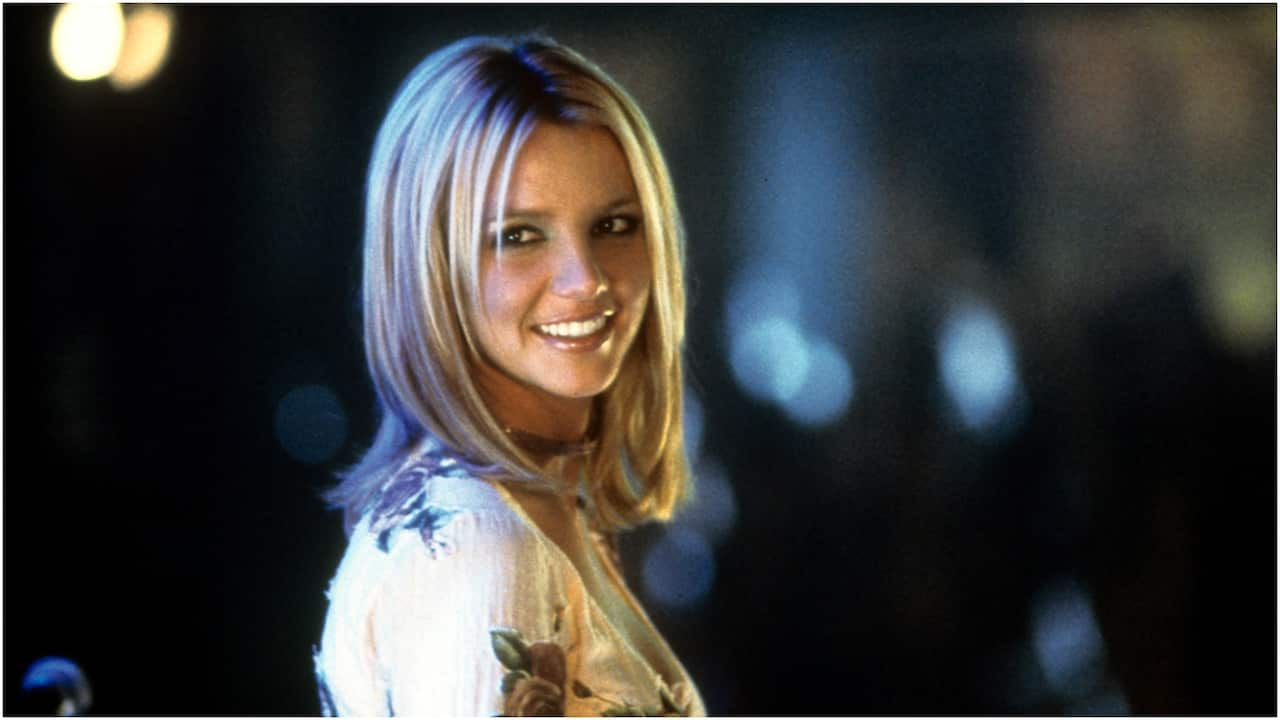A tiny but talented 10-year-old Britney Spears had just sung her lungs out during the 1992 ‘Star Search’ when she was asked by the host: “I noticed last week you have the most adorable, pretty eyes, do you have a boyfriend?”
After Spears hit the big time at age 16, this line of questioning would only become more invasive.
When she was 17-years-old, a male interviewer told Spears: “Everyone’s talking about it”. “Talking about what?” Spears responded. “Your breasts,” he replied.
These incidences, chronicled in a new documentary by The New York Times, have reminded fans of what they describe as the sexist tabloid culture that permeated the early 2000s. Fans are now apologising to the pop star on social media for how she was treated, using the hashtag #WearesorryBritney.
Fans are now apologising to the pop star on social media for how she was treated, using the hashtag #WearesorryBritney.

Popstar Britney Spears was regularly questioned about her virginity by the media. Source: Getty
The obsession over Spears’ virginity at the height of her career and subsequent slut-shaming brought on by her break-up with fellow star, Justin Timberlake, is also explored in the documentary.
In one scene, Spears looks visibly uncomfortable as she’s asked by a journalist if she’s a virgin before a pop awards ceremony in Cannes.
Spears claimed she was a virgin and was saving herself for marriage. However, in a radio interview following their break-up in 2002, Timberlake confessed he’d had sex with Spears.
As told by the documentary, Timberlake’s single ‘Cry Me A River’ featured a Spears’ lookalike and appeared to suggest she’d been disloyal throughout the relationship.
The young pop star was later interrogated about the relationship during an interview with ABC’s ‘Primetime Thursday’ in 2003 where she was asked what she had “done” to cause the break-up.
The host, Diane Sawyer, claimed Spears had “upset a lot of mothers in this country”, including the wife of the governor of Maryland at the time who said she’d shoot Spears if she had the “opportunity.”
Music journalist Sosefina Fuamoli told The Feed the documentary was an “eye-opening snapshot” of what young female stars went through at the time.
“If someone like Britney Spears hadn’t had such a meticulously crafted image of purity, virginity, and the whole kind of girl next door image...it wouldn’t have been such a jarring thing when all of a sudden she's growing up,” Fuamoli said.
Ladbible entertainment journalist Jessie Lynch said that looking back, the hypersexualisation of Spears when she was just as a teenage girl was “disturbing”.
“I remember seeing the reports when her and Justin Timberlake broke up, I would’ve been 10 years old, and she was painted as this slut who’d broken her virginity. But why wasn’t he getting any of this backlash?,” Lynch said. Spears’ very public demise came in 2007 when she was photographed shaving her head and smashing a paparazzi’s car with an umbrella.
Spears’ very public demise came in 2007 when she was photographed shaving her head and smashing a paparazzi’s car with an umbrella.

Britney Spears performing on stage. Source: Getty Images Europe
Lynch said that at the time Spears’ breakdown was often the butt of the joke in pop culture and that online you could even bet money on what day the star would commit suicide.
She added while people say stars like Taylor Swift cop a lot of scrutiny, in reality, it’s nothing compared to what Spears experienced in the early 2000s.
“Now, you can kind-of log off social media and avoid it to an extent but when there’s people outside your house 24/7, hurling abuse at you... there’s no doubt that affects someone’s mental health,” Lynch said.
“In just observing this happen, we kind of became part of the problem,” Fumaoli added. The documentary also discusses the #FreeBritney movement, sparked by Spears’ 12-year conservatorship which began with her father, Jamie Spears, in 2008.
The documentary also discusses the #FreeBritney movement, sparked by Spears’ 12-year conservatorship which began with her father, Jamie Spears, in 2008.

Britney Spears' father has been her legal guardian since 2008. Source: FilmMagic
For over a decade, fans have been speaking out about the 39-year-old’s lack of control over her life and questioning why her father controls her finances.
“Once she completed rehab, [the court] said she not mentally fit to carry on her life without the conservator. But her fans are saying, well, she's mentally fit to do all these ridiculous touring schedules non-stop,” Lynch said.
Mr Spears told The Post in 2020 that the #FreeBritney movement was "a joke" and that "all these conspiracy theorists don’t know anything."
While uncertainty remains about Spears’ mental health and the conservatorship, the documentary provides a deeper insight into how female pop stars were treated in the early 2000s.
“The cool thing that popstars like Lizzo and Billy Eilish are doing is that they're just coming out, they're being themselves and letting their personalities speak through their art,” Fumaoli said.
“With social media... we can be more aware of how our artists are going through stuff at the moment,” she added.
“I hope that more people are able to see the documentary, to educate themselves and maybe even have their own perceptions changed.”
Readers seeking support and information about suicide prevention can contact Lifeline on 13 11 14, Suicide Call Back Service on 1300 659 467 and Kids Helpline on 1800 55 1800 (up to age 25).
More information about mental health is available at Beyond Blue.


